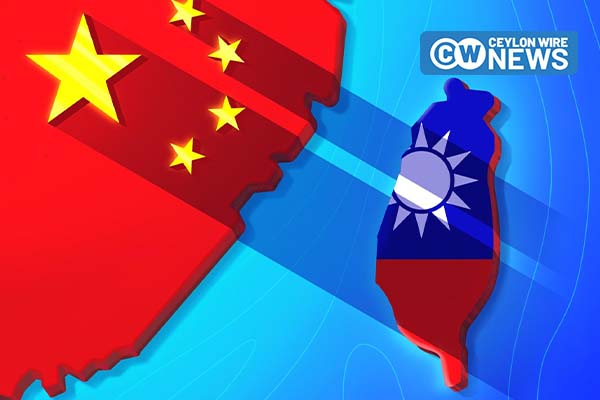In preparation for a pivotal presidential election, Taiwan is heightening its focus on suspected Chinese spies, revealing a deepening rift in relations with Beijing. Since 1949, Taiwan and China have engaged in mutual espionage, stemming from the establishment of a separate government in Taipei opposing Mao Zedong’s communist regime.
Over the past ten months, Taiwanese authorities have increasingly brought charges and secured convictions, underscoring their belief that Beijing’s espionage tactics have broadened beyond military circles. Retired air force colonel Liu Sheng-shu received a 20-year prison sentence in October for orchestrating a military spy ring for Beijing.
In stark contrast to the 44 espionage cases reported by Taiwan’s Ministry of Justice Investigation Bureau between 2013 and 2019, at least 16 individuals have been accused of spying for China since the beginning of this year. This surge coincides with China’s escalating territorial claims over the self-governed island, coupled with heightened military and political pressure.
Recent reports suggest China has expanded its global spy network, particularly targeting the US, prompting increased intelligence gathering efforts from Washington. Grant Newsham, a retired US Marine Corps colonel with extensive experience in the Indo-Pacific, notes that Taiwan’s proximity to China and shared language make it an attractive target, compounded by the island’s historically lenient approach to punishing espionage.
Taiwanese officials and experts assert that espionage is just one facet of China’s multifaceted campaign to exert influence on the island. Tsai Ming-Yen, director-general of Taiwan’s National Security Bureau, characterizes China’s approach as a “war without gunfire,” evidenced by escalating military incursions, diplomatic rebukes, and economic sanctions.
As the January election looms, Taiwan braces for further escalations, with incumbent Democratic People’s Party (DPP) positioning itself as a staunch advocate for Taiwan’s independence and sovereignty. Opposition candidates seek to maintain the status quo through renewed dialogue with Beijing. A victory for DPP’s candidate, current vice-president William Lai, would present a significant challenge to China’s unification aspirations.
Notably, Taiwan’s counter-espionage efforts are primarily focused on the military, with most accused spies having connections to or being accused of recruiting soldiers. Recent high-profile cases, such as the diabolo instructor Lu Chi-hsien’s alleged spy network, highlight the diverse tactics employed in recruitment.
Experts anticipate that investigations into Taiwanese businessmen could yield just as many cases. The overarching concern is that China’s espionage activities not only involve the theft of sensitive information but also the shaping of public opinion to garner support for Beijing.
In response, Taiwan’s DPP is waging an information war, strategically unveiling espionage allegations to bolster public perception. While some believe Chinese infiltration efforts may have limited influence, others caution that publicizing such incidents may have unintended consequences, potentially affecting Taiwan’s partnerships and collaborations.
The DPP’s 2020 passage of comprehensive anti-espionage laws, prompted by self-confessed Chinese spy Wang Liqiang’s revelations, underscores Taiwan’s determination to safeguard its sovereignty. However, debates persist over the efficacy of such measures, as analysts like Wen-Ti Sung from the Australian National University express concerns over potential repercussions for Taiwan’s international relationships. (Source: BBC)








